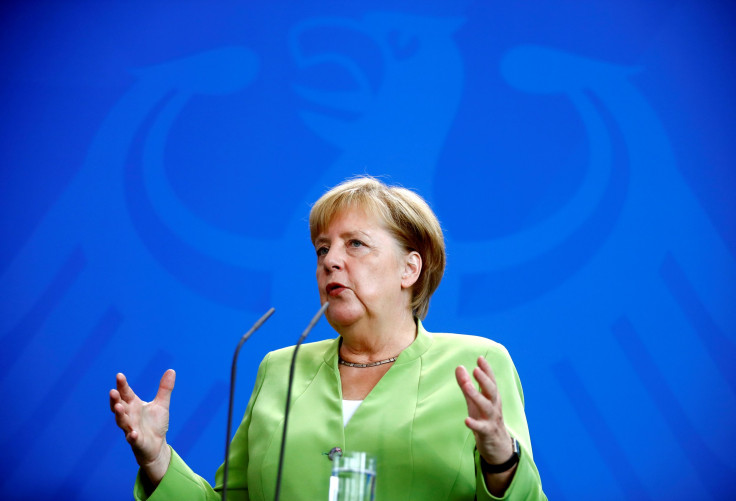Turkey Must Ensure Independence Of Central Bank: Merkel

BERLIN - German Chancellor Angela Merkel urged Turkey on Monday to ensure the independence of its central bank as other senior officials said that Turkey’s economic woes were causing great concern.
The Turkish lira has lost more than 40 percent against the dollar this year, largely due to worries about President Tayyip Erdogan’s influence over the economy, his repeated calls for lower interest rates, and worsening ties with the United States.
The currency pulled back from a record low to the dollar on Monday after the central bank pledged to provide liquidity, but it remained under selling pressure and its meltdown continued to rattle global markets.
“Nobody has an interest in an economic destabilization in Turkey. But everything must be done to ensure an independent central bank,” Merkel said during a news conference in Berlin when asked about the economic situation in Turkey.
“Germany would like to see an economically prosperous Turkey. This is in our interest,” Merkel added.
German Foreign Minister Heiko Maas said that Ankara could do more to improve diplomatic ties with both the United States and Germany which would also ease its economic woes.
“Yes, the developments that are currently going on in Turkey are causing great concern,” Maas said.
Turkey’s relations with United States and Germany have been strained by its decision to arrest several citizens from both countries. Maas said that resolving differences between Turkey and its two NATO allies could help ease its economic crisis.
“I believe that would help to facilitate a solution, including to the economic problems,” Maas said.
A spokeswoman for the German Finance Ministry said she was not aware of any crisis talks among members of the G20 industrialized countries on the situation.
She added that it was too early to comment on the exposure of German companies to the economic situation in Turkey.
Germany’s VDMA engineering association said that machinery exports to Turkey had fallen nearly 5 percent from January to May compared with the first five months in the previous year.
“The negative development is likely to continue in the coming months since the Turkish lira has fallen sharply against the euro,” VDMA said, pointing to U.S. President Donald Trump’s decision to impose new sanctions and higher tariffs on Turkey.
Reuters
Reporting by Andreas Rinke, Joseph Nasr and Michael Nienaber; Editing by Alison Williams
© Copyright Thomson Reuters 2024. All rights reserved.





















